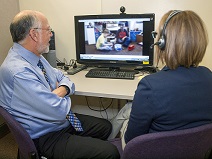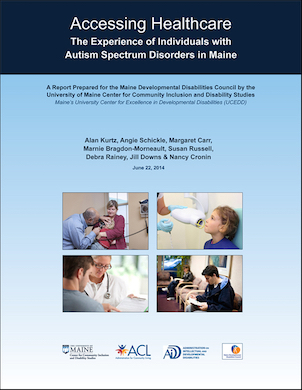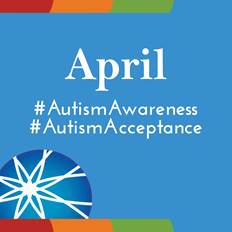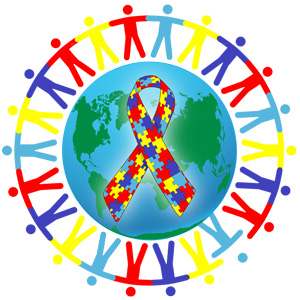MN LEND fellow co-founds Minnesota Autistic Alliance
Milena Bates (MN LEND 2021-22), co-founder of the Minnesota Autistic Alliance, is recruiting self-advocates for new projects supported by a grant from the Minnesota Department of Human Services. Cultivate, a 10-hour online self-advocacy course covering how to identify needs, navigate barriers, and understand intersectionality (among other topics), begins August 23. It is designed for and by neurodivergent self-advocates. Lattice is a partnering program that will connect a team of three partners best suited to the support needs of a self-advocate. The group also is recruiting writers for an accessible, digital resource database.
Autism NOW Employer Toolkit
Autism NOW created a toolkit and designed it for employers to hire, train, and retain employees with an ASD as well as other disabilities.
2015 DBP Annual Meeting Overview
The annual meeting of the MCHB-funded Leadership Education in Developmental Behavioral Pediatrics (DBP) Training Programs was hosted by the Children's Hospital of Philadelphia DBP program on March 18-20, 2015. Approximately 35 faculty and 40 fellows from the 10 funded DBP training programs were in attendance at the meeting.
It Takes a Village to Raise the Bar on Early Autism Identification and Referral
The Utah Regional LEND program is tackling the problem of low identification rates for autism in children under 3 years. Within our five-state LEND, one state, Utah, has been part of the CDC/ADDM autism prevalence studies for several years. Although Utah's prevalence rate is always one of the highest, only 33% of children with autism are identified in medical or educational records before age 3. To change this statistic, URLEND trainees worked across organizational and agency boundaries to create a statewide Network for Early Autism Response.
University of Iowa Telehealth Project Brings Behavioral Treatment for Autism to Rural Areas
The intent of this project is to evaluate the effectiveness and efficiency of conducting behavioral treatment for autism through telehealth to reach underserved areas of a rural state. The study is testing whether functional analysis and functional communication training, conducted through telehealth, are effective in reducing disruptive behavior and increasing positive social behaviors in young children with autism spectrum disorders.
Problem-solving Skills Training for Mothers of Children Recently Diagnosed with Autism Spectrum Disorder: A pilot feasibility study
The objective of this study was to see whether mothers of children recently diagnosed with autism spectrum disorder would be receptive to receiving problem-solving skills training (feasibility trial).
ME UCEDD, NH LEND Faculty and Trainees, and Maine DD Council Collaborate on Research Report on Healthcare Access for Individuals with ASD in Maine
The University of Maine Center for Community Inclusion and Disability Studies, Maine's University Center for Excellence in Developmental Disabilities (UCEDD) and also a NH LEND program partner; recently collaborated with the Maine Developmental Disabilities Council on a research report, Accessing Healthcare: The Experience of Individuals with Autism Spectrum Disorders in Maine (2014).
Unmet Need for Therapy Services Among Children with Autism Spectrum Disorder
This HRSA R40 Secondary Data Analysis Study examined population-based differences in need for and access to therapy services in children with ASD as compared to CSHCN across two cross-sectional waves of the National Survey for Children with Special Health Care Needs (NS-CSHCN; Centers for Disease Control & Prevention, National Center for Health Statistics).
Massachusetts: Considering Culture in Autism Screening
During the 2015 AMCHP Annual Conference, Massachusetts state team leads presented a skills-based training session on its Considering Culture in Autism Screening curriculum. This interactive, case-based training session focused on about culturally competent screening, evaluation, and referral to intervention services for children with autism spectrum disorder (ASD)/developmental disabilities (DD).
The Autism Society National Autism Awareness Month 2015 toolkit is here!
The Autism Society is providing you with this toolkit to complement your National Autism Awareness Month programming and hope you will share it with your partners, collaborators, supporters and constituents. The digital guide contains a wealth of promotional resources and collateral to enhance your National Autism Awareness Month campaign.
2015 AUTISM CARES Grantee Meeting July 16 -17 2015
Implementing Evidence-Based Practices in Real World SettingsOn July 16-17, 2015, ITAC in collaboration with SPHARC and HRSA-MCHB will host the 2015 Autism CARES Grantee Meeting: Implementing Evidence-Based Practices in Real World Settings�
April is for #AutismAwareness and #AutismAcceptance
During the month of April, AUCD joins people with autism, their families, and those who serve and support them to increase public acceptance and appreciation of the needs of individuals with autism and their families, and recognition of the diverse range of abilities and talents people with autism possess.
Updates from the State Public Health Autism Resource Center
AMCHP's mission is to support state maternal and child health programs by providing national leadership on issues affecting woman and children. In support of this mission, the State Public Health Autism Resource Center (SPHARC) has several new activities planned, along with presentations, webinars and technical assistance opportunities designed to aid and assist ASD/DD grantees.
Clarification of Medicaid Coverage of Services to Children with Autism
A CMS Informational BulletinToday The Centers for Medicare & Medicaid Services (CMS) released an informational bulletin with respect to services available under the Medicaid program to children with autism spectrum disorder (ASD).
Genetic Link to Autism Found: CHD8 Mutation
In a collaboration involving 13 institutions around the world, researchers have broken new ground in understanding what causes autism. This is the first time researchers have shown a definitive cause of autism to a genetic mutation. Previously identified genetic events like Fragile X, which account for a greater number of autism cases, are associated with other impairments, such as intellectual disability, more than autism.















